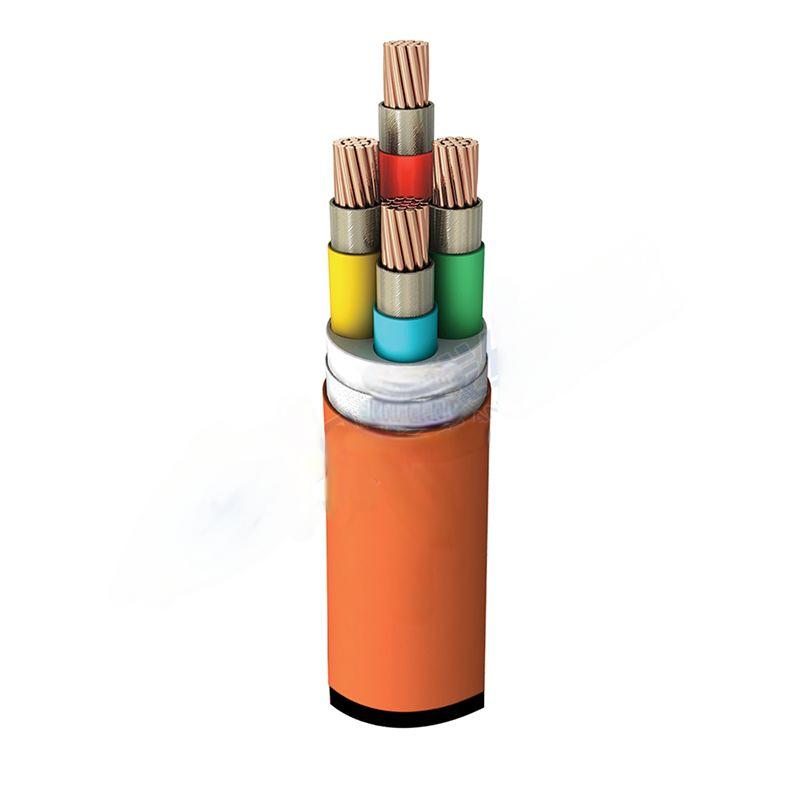ਨਵੰ. . 11, 2024 16:34 Back to list
knife gate valve
Understanding Knife Gate Valves An In-Depth Overview
Knife gate valves are critical components in various industrial applications, primarily used for on/off services in the flow of liquids or solids in slurries. Unlike traditional valves, knife gate valves are specifically designed to handle viscous fluids, granulated materials, and coarse slurries. Their unique design and operational features make them indispensable in several industries, including pulp and paper, wastewater treatment, mining, and food processing.
Design and Construction
The fundamental design of a knife gate valve includes a sharp-edged blade, which is its namesake, that slices through the media, allowing for efficient flow control. The blade is typically made from durable materials such as stainless steel or hardened alloys, which ensure longevity and resistance to wear. The design also incorporates a body that can either be fully or partially drained, making maintenance and cleaning easier.
Knife gate valves may be operated manually or automatically, depending on the application requirements. Manual valves utilize a handwheel or lever for operation, while automated versions are equipped with pneumatic or electric actuators for remote operation. This flexibility allows for integration into various systems, enabling seamless control over flow processes.
Advantages of Knife Gate Valves
1. Efficiency in Handling Solids and Slurries Knife gate valves are particularly effective in applications dealing with heavy solids or slurries. Their design minimizes the risk of jamming and enhances flow performance, making them suitable for challenging media that traditional valves struggle to manage.
2. Low Maintenance and Longevity As a robust solution for harsh operating conditions, knife gate valves require minimal maintenance. Their simple design allows for easy inspection and cleaning, thereby extending their operational lifespan and reducing costs associated with frequent replacements.
knife gate valve

3. Versatility These valves can be found in various configurations and sizes to fit different pipeline systems. Whether for horizontal or vertical installations, knife gate valves provide the versatility that many industries demand.
4. Leak-Proof Operation The design of knife gate valves facilitates a leak-proof operation when fully closed. This characteristic is crucial in preventing costly spills or contamination, especially in sensitive industries like food processing and pharmaceuticals.
Applications
The versatility of knife gate valves allows for their use across a broad spectrum of applications
- Pulp and Paper Industry In this sector, knife gate valves manage the flow of corrosive chemicals, wood chips, and pulp slurry with great effectiveness. - Wastewater Treatment They play a vital role in controlling the flow of sludge and other materials in treatment plants, helping to ensure efficient operation and environmental compliance. - Mining Operations In mining, knife gate valves handle abrasive materials, making them ideal for controlling the flow of ores and other substances in various stages of processing. - Food Processing In this industry, sanitation is paramount, and knife gate valves are designed to meet stringent hygiene requirements while managing viscous food products.
Conclusion
Knife gate valves represent a crucial technology in the management of fluid and solid flow within various industrial settings. Their unique design, combined with a range of operating options and materials, positions them as an optimal choice for handling challenging media. As industries continue to evolve and present new challenges, the adaptability and efficiency of knife gate valves will undoubtedly ensure their continued prominence. Understanding their functionality and applications will empower engineers and operators to make informed decisions, optimizing operational processes for improved productivity and safety.
Share
-
Reliable Wafer Type Butterfly Valves for Every IndustryNewsJul.25,2025
-
Reliable Flow Control Begins with the Right Ball Check ValveNewsJul.25,2025
-
Precision Flow Control Starts with Quality ValvesNewsJul.25,2025
-
Industrial Flow Control ReliabilityNewsJul.25,2025
-
Engineered for Efficiency Gate Valves That Power Industrial PerformanceNewsJul.25,2025
-
Empowering Infrastructure Through Quality ManufacturingNewsJul.25,2025